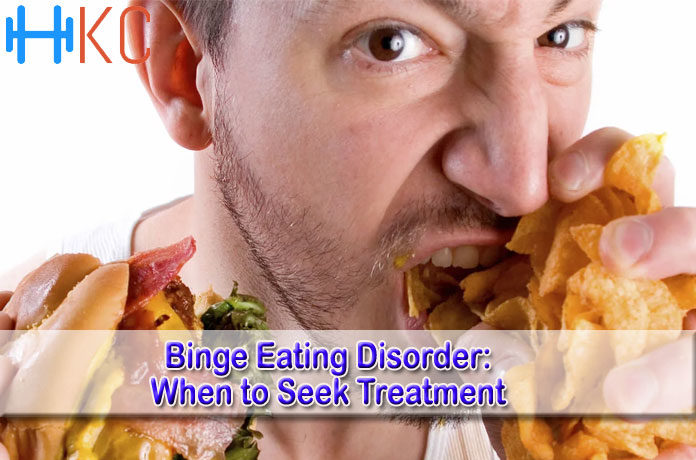Receiving a binge eating disorder diagnosis can be a difficult and confusing time for any individual and their loved ones. While many people may believe binge eating disorder is less serious than other common eating disorders, such as anorexia nervosa and bulimia nervosa, this is not the case as it can increase the risk of many long-term health conditions. Before individuals begin searching for eating disorder rehab facilities, it is important to learn more about this type of eating disorder and how it can affect themselves and their families.
When to Seek Eating Disorder Counseling for Binge Eating Disorder Recovery
Binge eating disorder is a very serious and potentially life-threatening mental health disorder. People of all ages, sexes, genders, races, ethnicities and cultural backgrounds are at risk for developing this type of eating disorder. In fact, binge eating disorder is the most common eating disorder affecting Americans today. With the help of comprehensive eating disorder rehab, this condition can be treated and successful binge eating disorder recovery can be possible.
Chances are if an individual or their loved ones have already been searching online for eating disorder facilities, it may be time to think about entering an eating disorder rehab. Whether there has been a diagnosis by a medical professional or someone has simply noticed the signs and symptoms of binge eating disorder, asking for help is the first step on the road to binge eating disorder recovery.
If loved ones notice an individual has become obsessed with food, fluctuating weight or overall body size, having a compassionate discussion about these issues is important. With the help of early intervention and a strong support system, many individuals can avoid long-term health consequences associated with the disorder and enjoy a successful recovery.
Seeking Treatment: 4 Questions to Ask Eating Disorder Facilities
- Do they specialize in binge eating disorder? It is important to ensure the eating disorder counseling center has a staff that is both educated and experienced in working with all different types of eating disorders. Because eating disorders affect people both physically and psychologically, it is also a good idea to look for eating disorder facilities that provide both medical and psychiatric care.
- What types of treatment are offered? There are many different types of interventions and therapies used to treat eating disorders such as binge eating disorder. Some of the most effective evidence-based therapies used to treat eating disorders may include Cognitive-Behavioral Therapy (CBT), Dialectical Behavioral Therapy (DBT) and Family Based Therapy (FBT).

- What levels of care are available? Eating disorder counseling is a long and often difficult process that can be full of ups and downs. While it is common to experience many highs as people reach new milestones in recovery, loved ones should remember setbacks do happen as well. This makes it paramount to seek a provider that offers support no matter where someone is in their recovery. Treatment centers that offer a continuum of care can be extremely beneficial on the road to recovery.
- What resources are available for the support network? A strong support system of family and friends can be an individual’s biggest asset during treatment. Finding an eating disorder treatment center that keeps clients closely connected with their loved ones and offers additional support for families during the process can make a huge difference for everyone involved.
Binge Eating Disorder Treatment at Oliver-Pyatt Centers
Interested in learning more about the benefits of binge eating disorder treatment? Call 1.866.511.4325 for more information about our eating disorder facilities and to speak with our friendly admissions specialists today.























